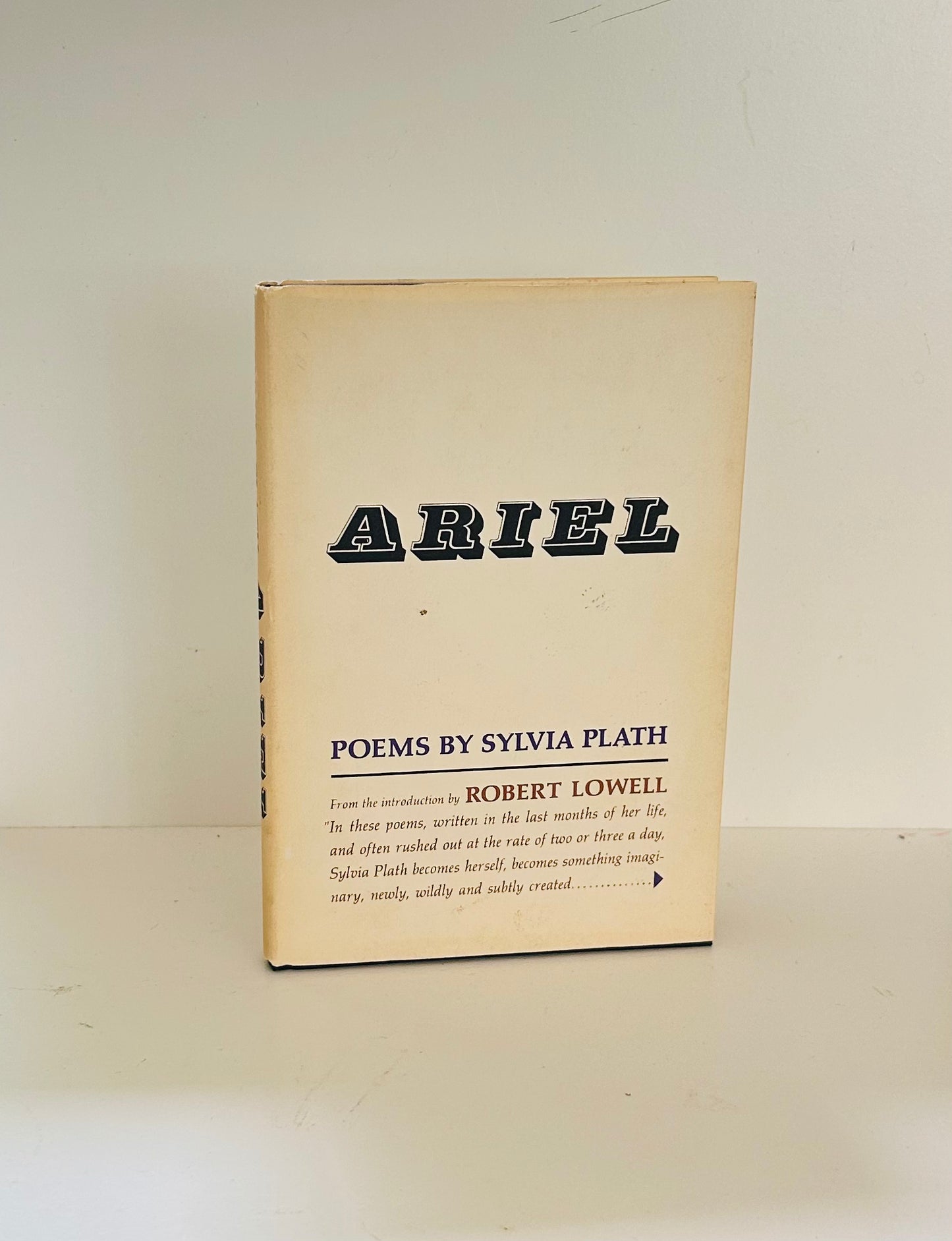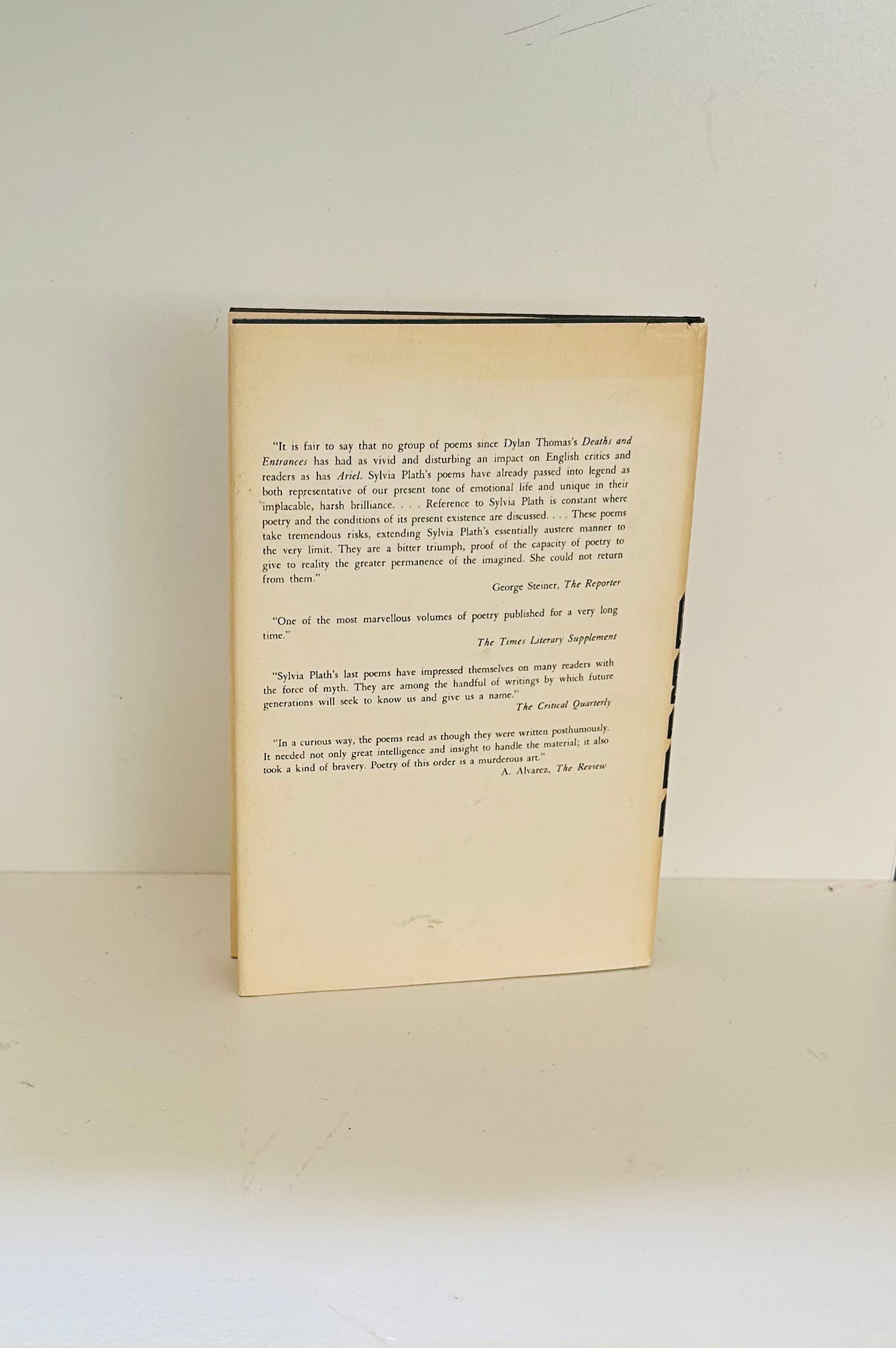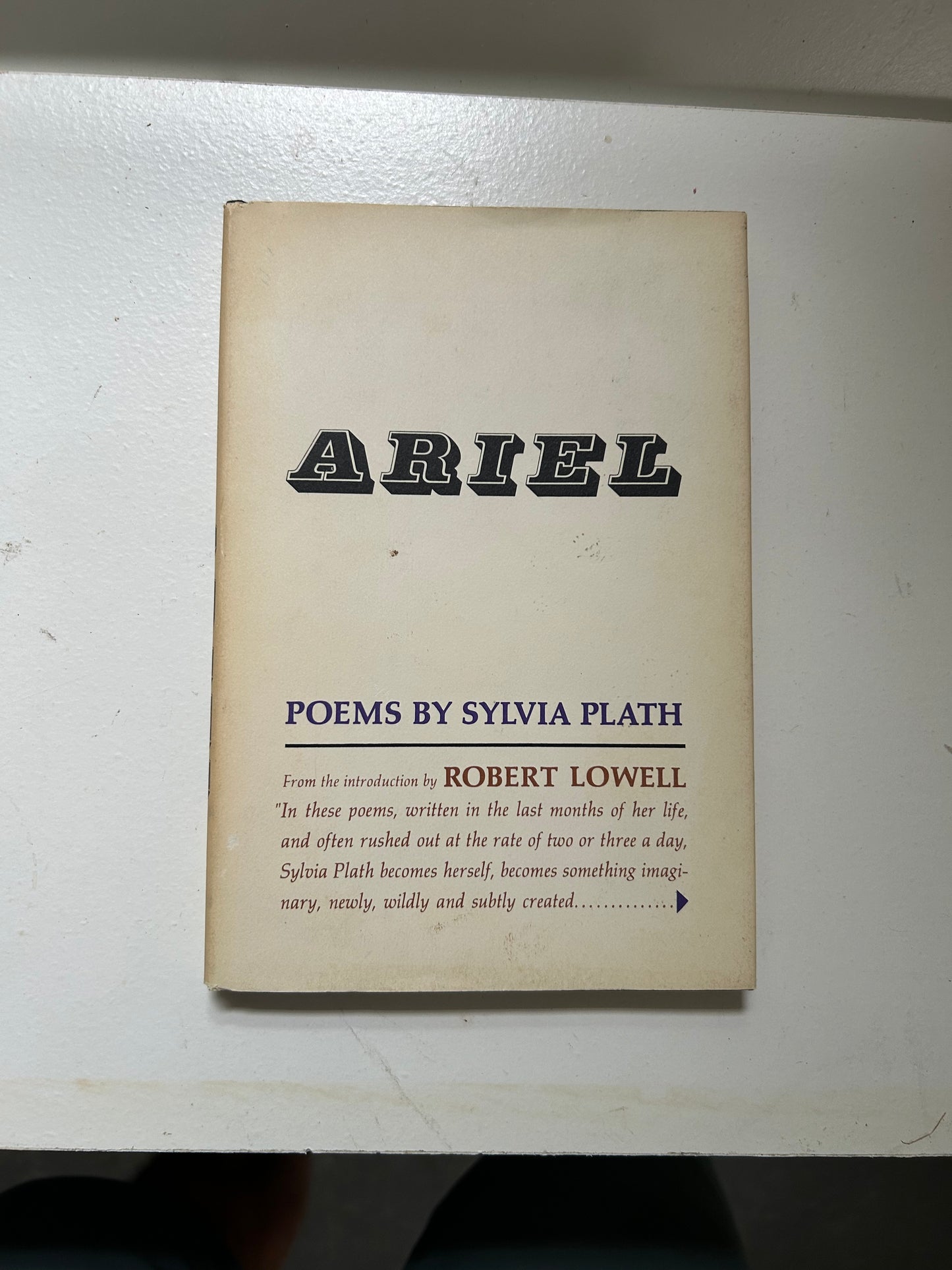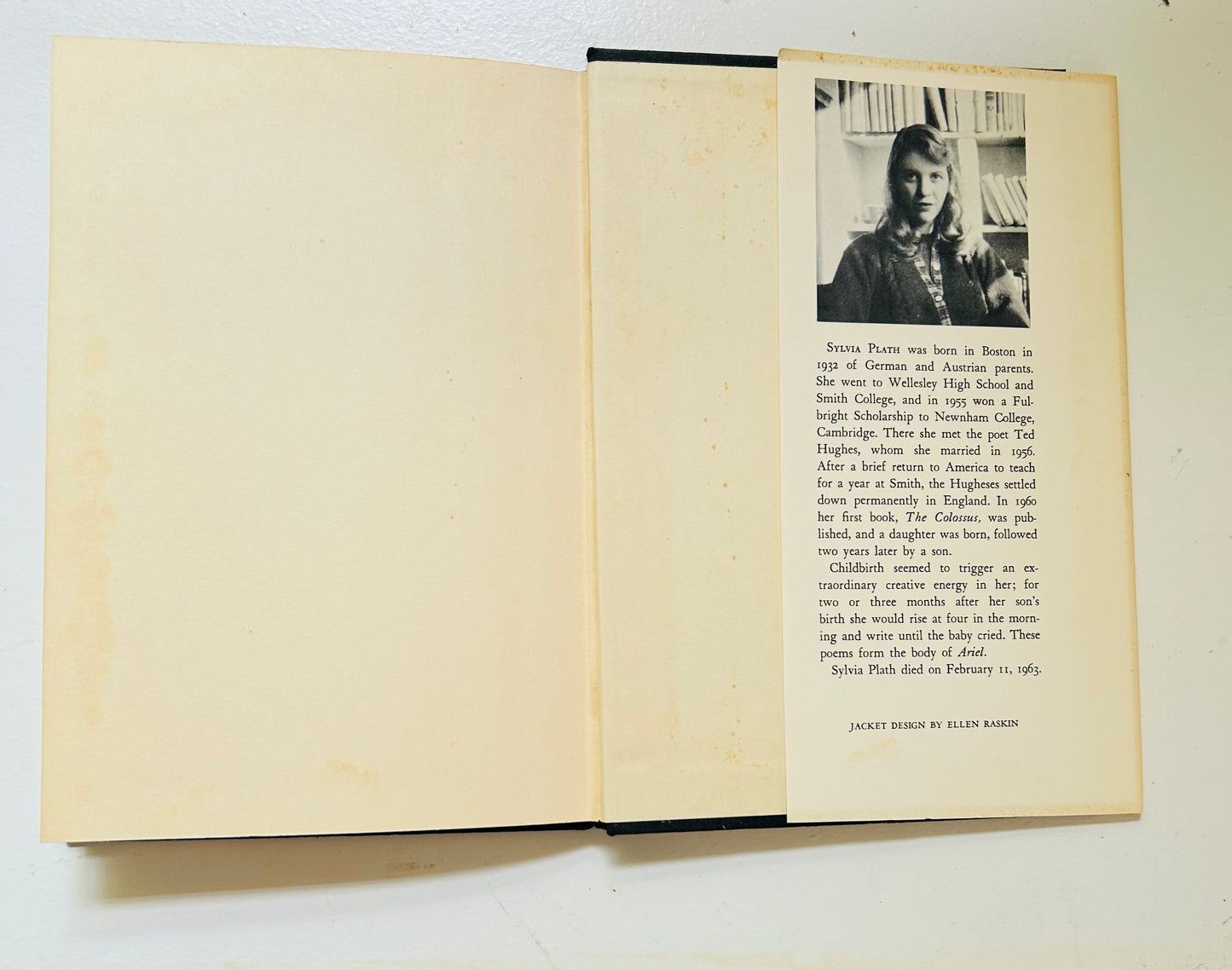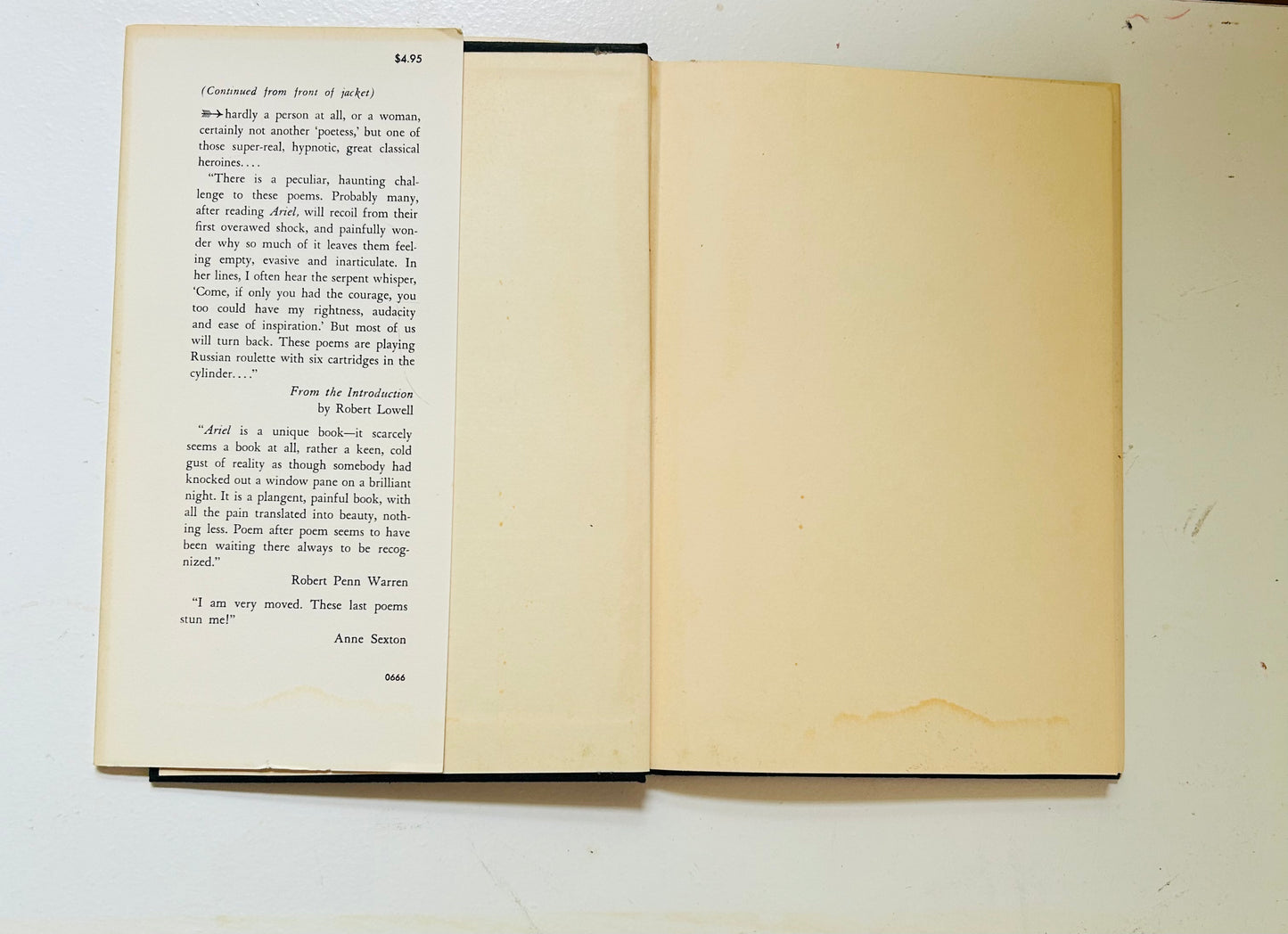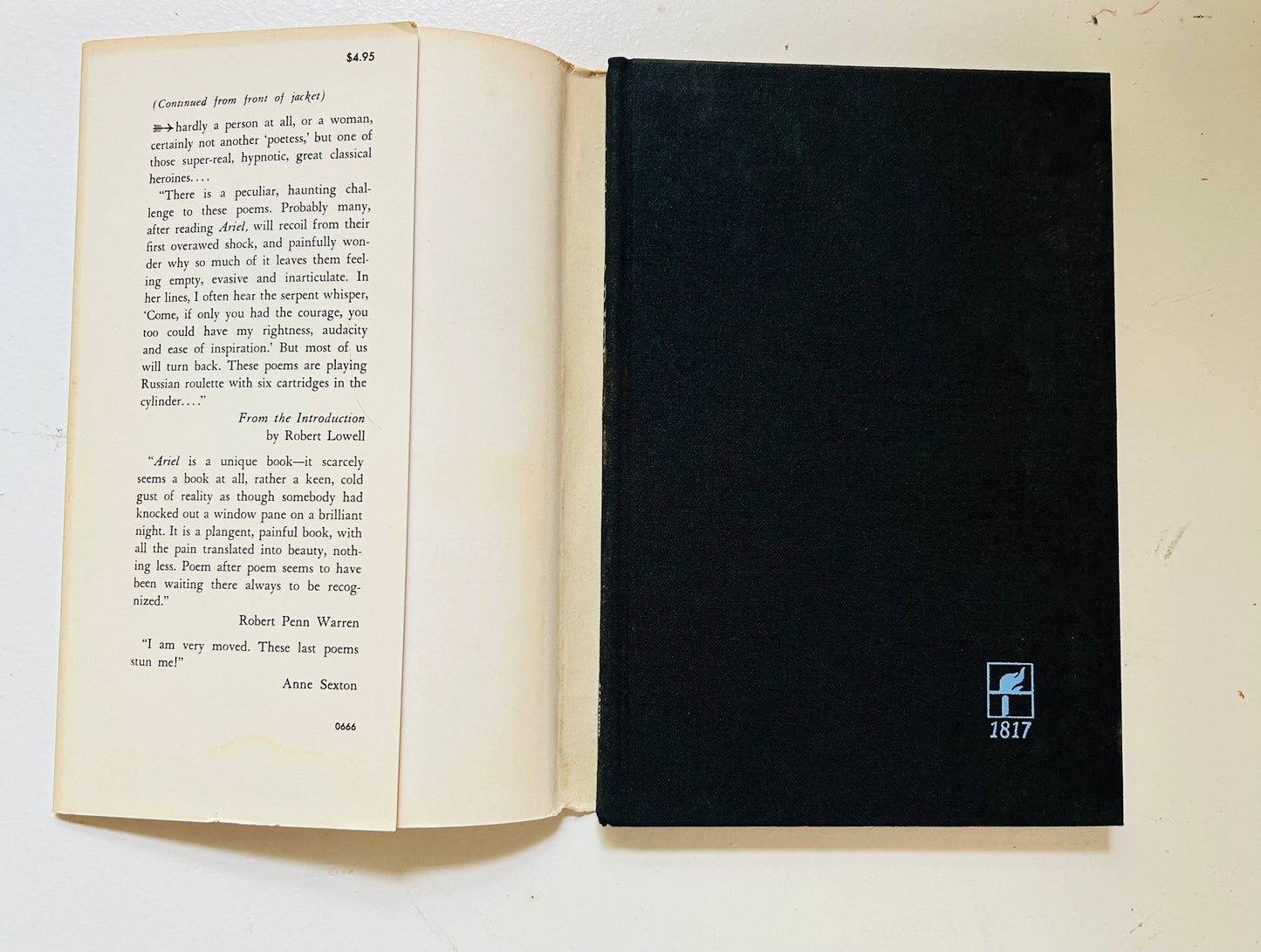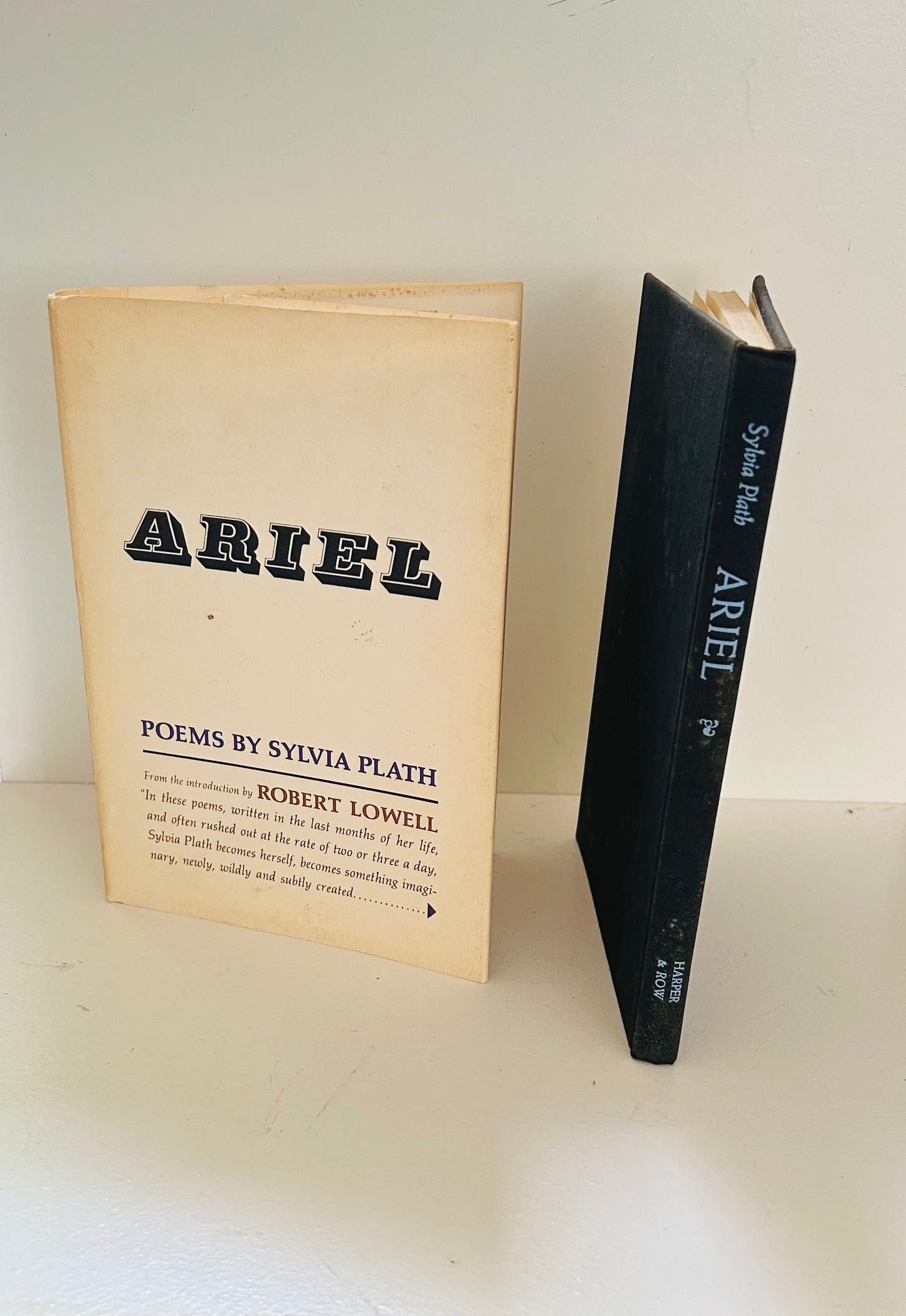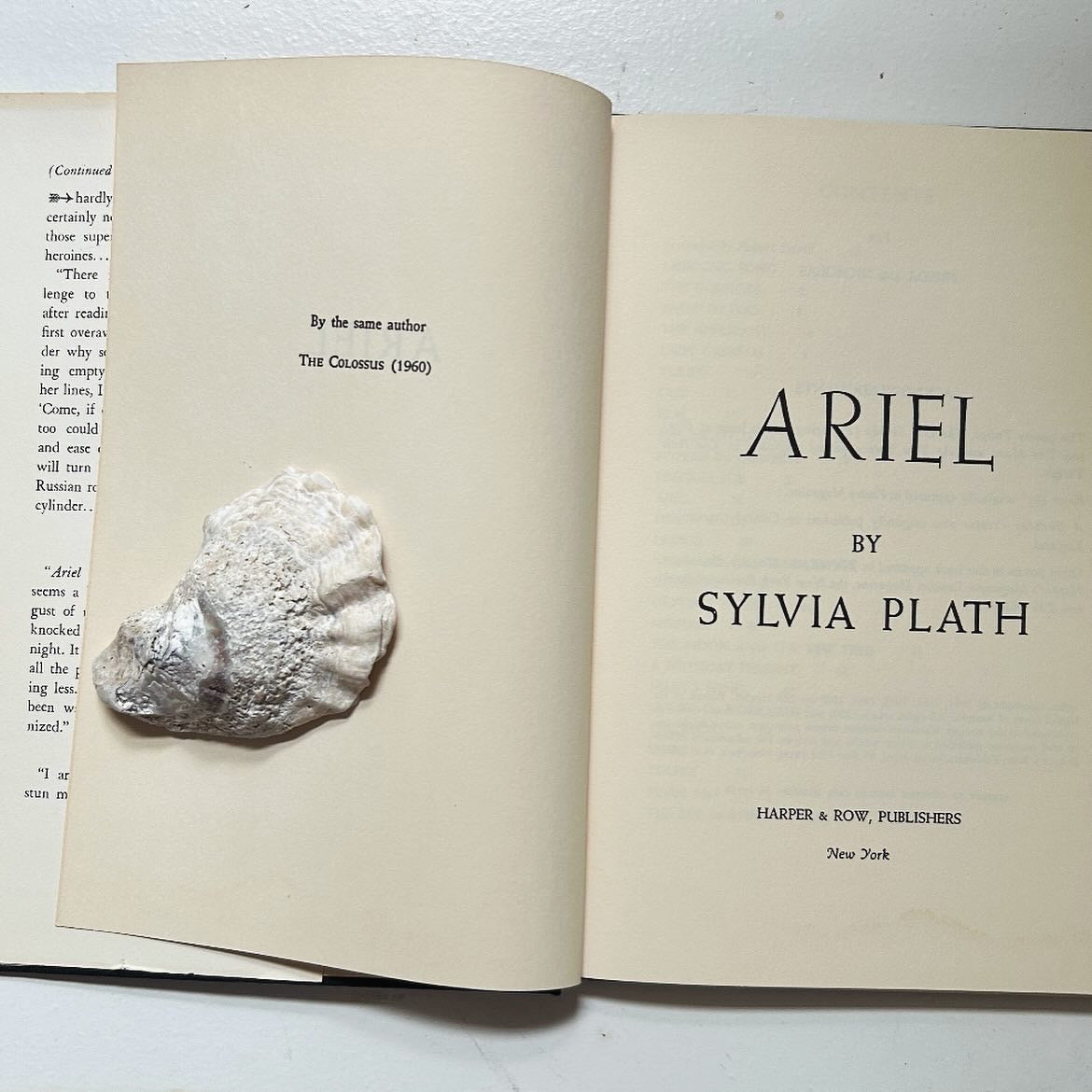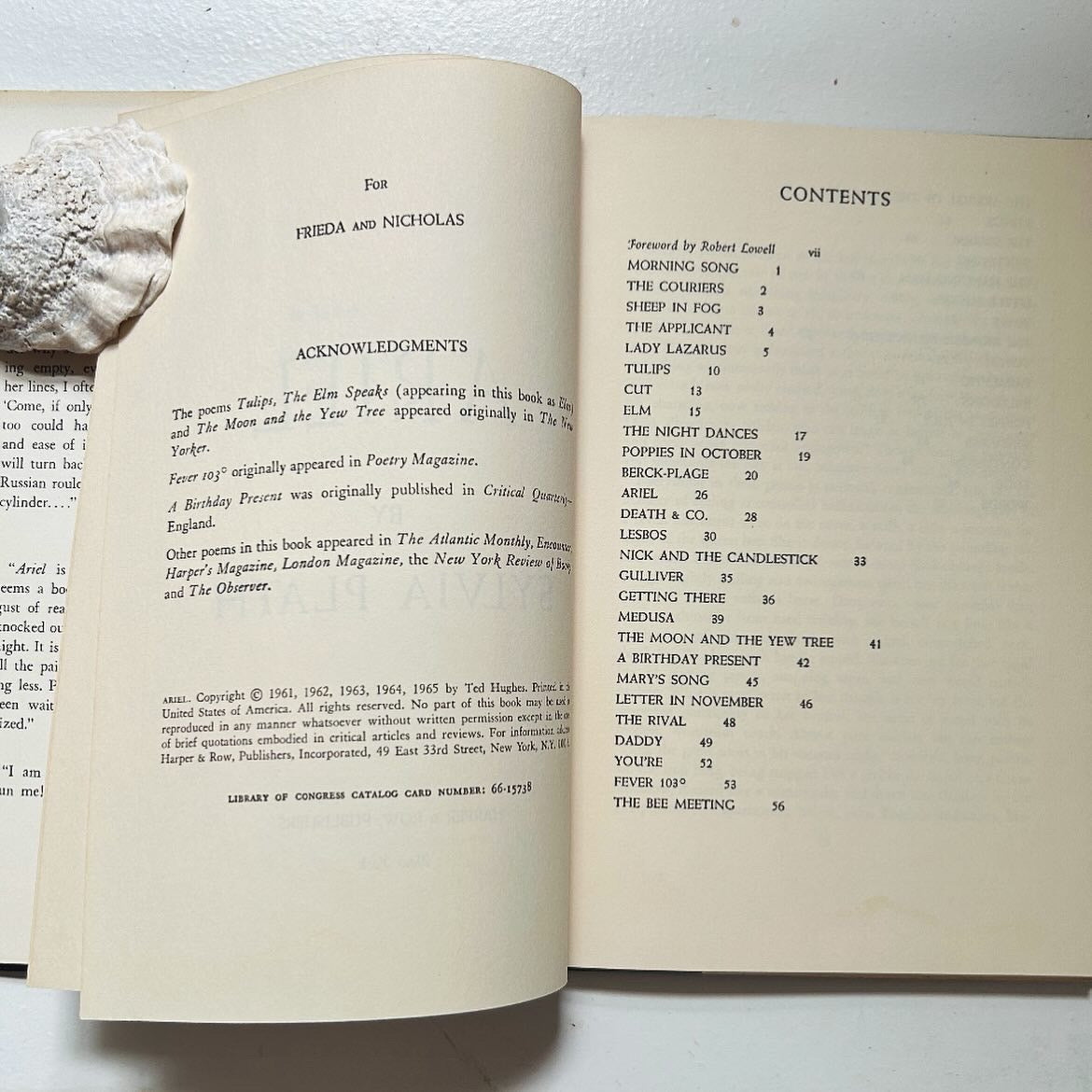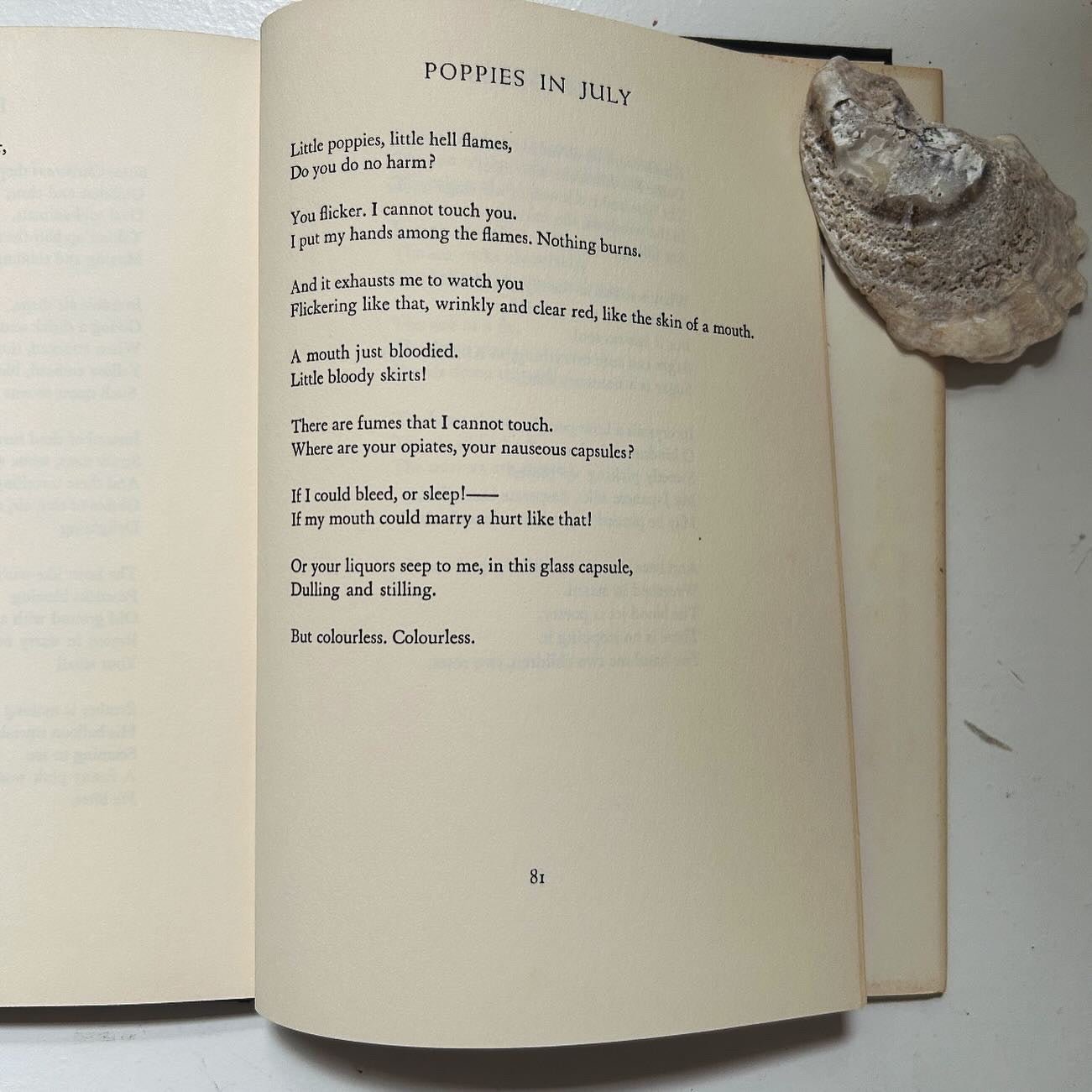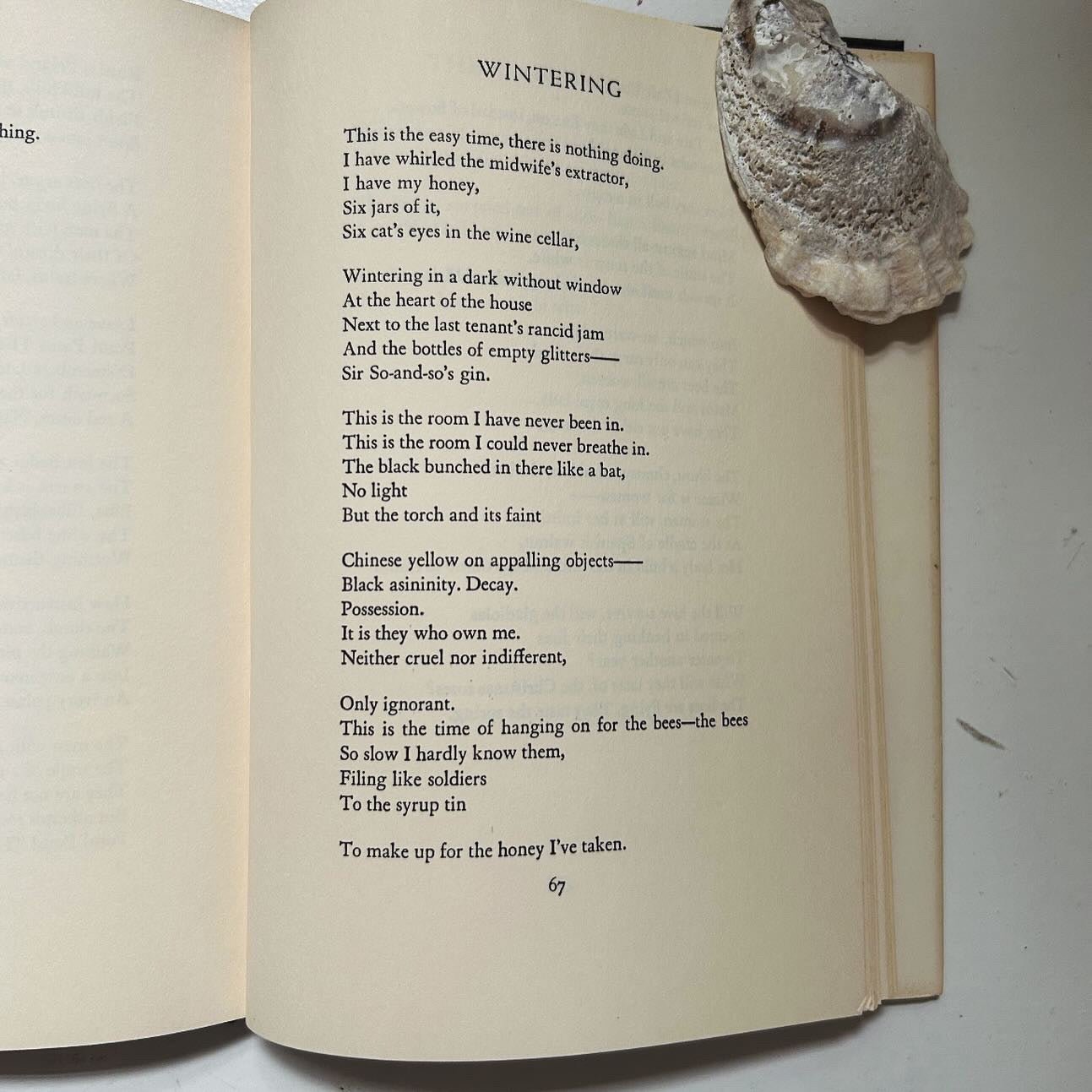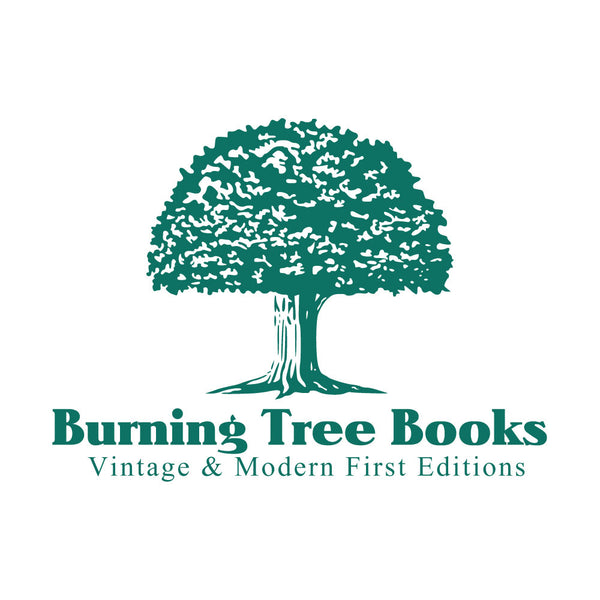Florida Burning Tree Books
Ariel
Ariel
Impossibile caricare la disponibilità di ritiro
Sylvia Plath. First American edition, later printing (7th). New York: Harper and Row, 1971 (1965 is the last date on copyright page). Introduction by Robert Lowell. The dust is in Near Fine condition, unclipped, with original price $4.95 still on inside flap. Jacket designed by the great Ellen Ratzkin. The dust jacket appears to be a first state though with the code "0666" for June of 1966, the release date of the first printing. Contains a few small blemishes on the front and back of the jacket, the spine also has toning. Otherwise, the jacket is really well preserved.
The hardcover is also in Near Fine condition. With a 1971 publication date (first edition not stated and does not have "D-Q" code on copyright page). Last page has 71-
A beautiful copy of a very scarce edition of Plath's poems, published posthumously by her ex-husband, Ted Hughes. Note: The last copyright date is 1965 but the introduction was written by Lowell in 1966.
Plath's vivid use of imagery heightens the confessional nature of the poems, sometimes twisting into the surreal and horrific. "ARIEL is not easy poetry to criticize. It is not like any other poetry. It is her," noted POETRY BOOK SOCIETY, who named it their Spring Choice of that year.
This was Plath's third book, The Colossus was published in 1960. The Bell Jar was published a month before her death (1963). Ariel was written on her thirtieth birthday, October 27, 1962. Sylvia Plath's first published poem was printed in a local Boston newspaper, August 10, 1941. Finally, three poems added to this American edition, were not included in the UK issue.
"Many of the poems in Ariel were written in an extraordinary burst of creativity just before Sylvia Plath's death in 1963. It is the volume on which her reputation as one of the most original, daring and gifted poets of the twentieth century rests."
"The first American edition was published in 1966 and included an introduction by the poet Robert Lowell. This was appropriate, since, in a BBC interview, Plath cited Lowell's book Life Studies as having had a profound influence over the poetry she was writing in this last phase of her writing career. In the same interview, Plath also cited the poet Anne Sexton (also originally from Boston like Plath) as an important influence on her writing during this time since Sexton was also exploring some of the same dark, taboo, personal subject matter that Plath was exploring in her writing."
Share
